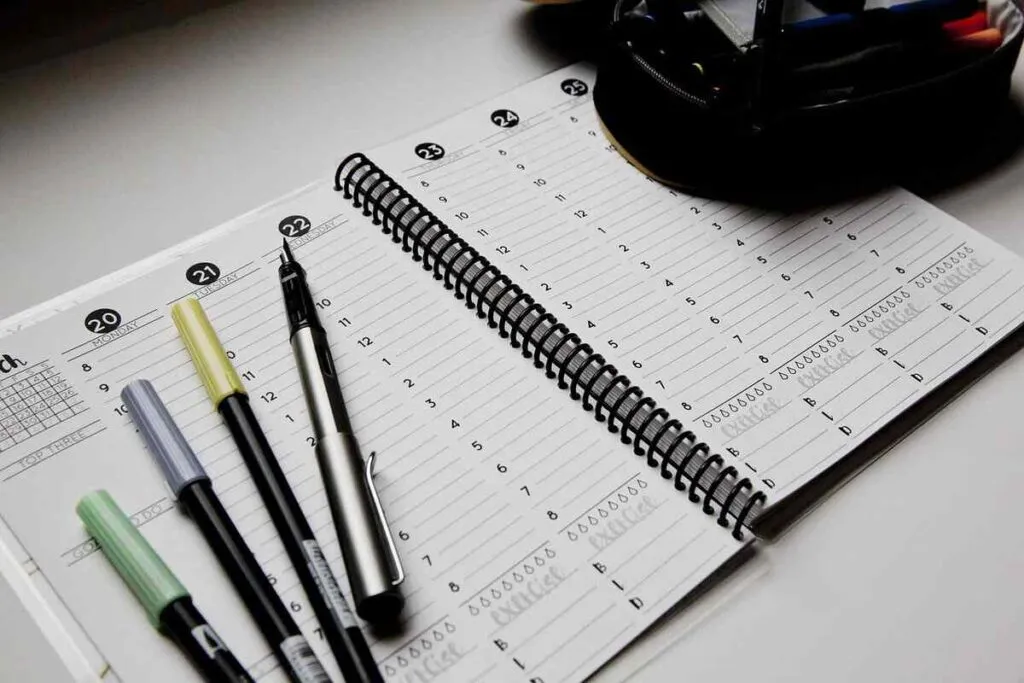Stress touches every part of lifework, health, relationships—but it doesn’t have to control you. In this guide, you’ll discover 15+ science-backed stress management techniques that are practical, proven, and easy to fit into your daily routine. Use them to calm your mind, protect your health, and take back your peace of mind—starting today.
Contents
Why Stress Relief Matters More Than Ever
Stress is an unavoidable part of life, which is why mastering stress management techniques has never been more crucial. Whether its looming work deadlines, financial pressures, health concerns, or simply juggling daily responsibilities, stress affects all of us. From work emails piling up to health concerns, family responsibilities, and global uncertainty, we often find ourselves operating in a constant state of pressure.
But stress isn’t just a mental nuisance—it takes a real toll on your physical and emotional well-being. Left unchecked, it can lead to burnout, chronic disease, and breakdowns in relationships and productivity.
Here’s the good news: you can take control. But managing it doesn’t require fancy equipment or a lot of downtime. What you need are stress relief strategies that are proven, practical, and work for real people with real lives—like you.
This guide will walk you through 15+ powerful stress management techniques—simple to apply, scientifically backed, and designed to help you take back control of your mind, body, and peace of mind.
What Is Stress and Why Should You Care?
Stress is your body’s natural reaction to any demand or threat. When your brain senses a challenge—real or perceived—it triggers the “fight or flight” response. Your heart races, your breathing quickens, and stress hormones like cortisol and adrenaline flood your system.
This reaction is useful in short bursts. But when it becomes chronic, it can wreak havoc on your health.
Understanding the science behind stress is the first step in choosing the right stress management techniques that actually work.
Common Symptoms of Chronic Stress:
- Fatigue or trouble sleeping
- Anxiety or restlessness
- Headaches, tension, or muscle pain
- Digestive issues
- Weakened immune system
- Mood swings or irritability
- Difficulty focusing
Ignoring stress doesn’t make it go away—it allows it to grow. Managing stress effectively is not a luxury—it’s essential for long-term health and happiness.
The 15+ Stress Management Techniques That Actually Work
Here are the most effective stress management techniques that have stood the test of time, backed by both science and real-world success.
1. Deep Breathing and Box Breathing

A quick and easy way to regain calm when stress strikes. Deep breathing slows the heart rate, lowers blood pressure, and signals your nervous system to relax.
Try this technique: Box Breathing
Inhale for 4 seconds → Pause for 4 → Exhale for 4 → Hold for 4 — and repeat.
👉 Why it works: This method is used by Navy SEALs and therapists alike to regain focus and reduce anxiety instantly.
2. 30 Minutes of Movement (Daily)

Physical activity is one of the most effective stress relievers available—and it doesn’t require a gym membership.
Great options:
- Brisk 20-minute walk
- Yoga at home
- Dancing to your favorite playlist
- Jump rope or home workouts
- Swimming or cycling
👉 Science says: Exercise increases endorphins and reduces cortisol. Even light movement makes a big impact.
3. Mindfulness and Meditation
Meditation trains your brain to stay present instead of spiraling into past regrets or future worries.
Apps to help: Headspace, Calm, Insight Timer
Start with just 5–10 minutes a day.
👉 Bonus: Mindfulness is now used in hospitals, schools, and workplaces for stress prevention.
4. Journaling for Clarity
Writing out your thoughts gives your perspective, helps you spot triggers, and releases pent-up emotion.
Try these journaling prompts:
- What’s weighing on my mind right now?
- What can I control, and what can I release?
- 3 things I’m grateful for today.
👉 No rules. No grammar checks. Just honesty.
5. Time Management and the 80/20 Rule

Many people feel stressed simply because they don’t know what to prioritize.
Use this rule: Most of your success comes from a small part of your actions. Focus on high-impact tasks and drop the unnecessary.
Tools to try:
- Notion
- Todoist
- Google Calendar
- Pomodoro Timers
6. Get Better Sleep—Consistently

Sleep is your body’s reset button. Chronic stress and poor sleep feed each other in a vicious cycle. You can’t manage stress if your brain and body are running on empty.
Aim for 7–9 hours of high-quality sleep every night. Set a regular sleep schedule, reduce screen time before bed, and create a calming bedtime ritual (like light reading, stretching, or a warm shower).
✅ Pro Tip: Even short-term sleep loss can increase cortisol and impair your emotional regulation.
👉 Related Read: Importance of Sleep: Tips for Better Rest — learn how better sleep habits can lower your stress levels naturally.
7. Limit Stimulants and Reduce Alcohol
Caffeine and alcohol may seem like stress crutches—but over time, they can heighten anxiety and disrupt sleep.
What to try instead:
- Herbal teas (like chamomile or lemon balm)
- Adaptogenic herbs (ashwagandha, Rhodiola)
- Plenty of water
8. The Power of Human Connection
Talking with a trusted friend or therapist can offload mental weight and provide emotional grounding.
Ways to build support:
- Call a friend regularly
- Join online forums or groups
- Attend community meetups or local clubs
- Consider professional help if needed
9. Laughter and Humor

Laughter reduces cortisol and increases dopamine and endorphins—your natural mood boosters.
How to laugh more:
- Watch comedy shows
- Funny YouTube or TikTok videos
- Joke with coworkers or friends
- Follow uplifting social media accounts
10. Say No without Guilt
Setting boundaries is a form of emotional self-defense which is one of the most empowering stress management techniques, especially for people-pleasers.
Practice phrases like:
- “I value what you’re doing, but I can’t give it the attention it deserves right now.”
- “Let me get back to you after checking my schedule.”
👉 Saying “no” isn’t selfish—it’s self-care.
11. Eat for Mental Wellness
Food isn’t just fuel—it affects mood and brain function.
Best anti-stress foods:
- Leafy greens
- Omega-3s (salmon, walnuts)
- Whole grains
- Berries
- Dark chocolate (moderate)
Avoid: Sugary drinks, fried food, processed snacks, excessive alcohol.
👉 For more mental wellness support, check out our article on the best foods that improve mental wellness — a perfect complement to these stress management techniques.
12. Engage Your Senses
Sometimes we need to ground ourselves in the moment. Use your five senses to shift attention from anxiety to awareness.
Try:
- Holding something textured
- Smelling lavender or citrus oils
- Listening to calming music
- Sipping a warm herbal drink
- Watching candlelight or nature scenes
13. Digital Detox (Even for 1 Hour)
Too much screen time = information overload = more stress.
Tips:
- Turn off notifications
- Set app timers (e.g., Instagram max 30 min/day)
- Try a 24-hour digital Sabbath
- Keep your phone out of the bedroom
14. Gratitude Practice
Gratitude is one of the fastest ways to change your perspective—and your brain.
Daily habit:
Make it a nightly routine to write down three things you appreciate. Keep a Gratitude Jar or Journal.
15. Volunteer or Help Others
Studies show that giving back reduces stress and boosts life satisfaction.
Even small acts help:
- Donating time to a cause
- Helping a neighbor
- Sending a thoughtful message
Giving is grounding.
Bonus: Real-Life Stories of Stress Management Success
These personal stories show just how transformative the right stress management techniques can be in everyday life.
👩 Julia, 35 – Teacher in Texas:
“I started walking 30 minutes a day and doing breathwork before bed. My anxiety attacks stopped within 2 months.”
👨 David, 42 – Software Engineer:
“Switching to a digital detox on weekends changed my life. This simple habit helps me sleep more soundly and stay focused throughout the week.”
👩 Aisha, 28 – Nurse:
“Talking to a therapist helped me understand my boundaries. I stopped saying yes to everything—and my burnout disappeared.”
You’re not alone—and what’s working for others can work for you too.
FAQs: Quick Answers to Common Stress Questions
Q1: What is the #1 stress relief method?
➡ There’s no one-size-fits-all. But deep breathing and daily exercise are the fastest, most accessible ways to reduce stress.
Q2: How fast do stress techniques work?
➡ Some (like breathing or laughter) can help in minutes. Others (like mindset changes or therapy) take weeks but have lasting impact.
Q3: Can stress really make me sick?
➡ Yes. Chronic stress is linked to heart disease, digestive issues, lowered immunity, and mental health conditions like anxiety or depression.
Q4: How long does it take for stress management techniques to work?
Some offer instant relief (e.g., deep breathing), while others like mindfulness or therapy show results over weeks.
Q5: Do I need medication to manage stress?
➡ Not always. Many people find relief through lifestyle changes. But if your symptoms are severe, consult a healthcare provider.
Q6: Can children or teens use these techniques?
➡ Absolutely! Breathing, journaling, talking to trusted adults, and limiting screen time are all effective for younger age groups too.
Final Thoughts: You Deserve Peace—and it’s Achievable
The beauty of these stress management techniques is that they’re simple, effective, and fit into almost any lifestyle — no matter how busy or overwhelmed you might feel. Stress is part of life—but suffering from it daily doesn’t have to be. You now have a toolbox of powerful, practical techniques—many of which take just minutes a day. You don’t need to try everything at once. Just start with one small habit and build from there.
Your mental well-being matters. Your peace of mind is a priority. And start with one or two of these stress management techniques today. Over time, they’ll become habits that support a healthier, calmer you — both mentally and physically.
Related Resources
- Best Health Apps in 2025 – Track mental health, stress, sleep, and wellness
- Telemedicine 2025 Guide – Consult professionals remotely for stress, anxiety, or wellness support
Disclaimer: The information provided in this article is for educational and informational purposes only. It is not intended as medical advice, diagnosis, or treatment. Always consult a qualified healthcare professional or licensed medical provider before making decisions related to your health, stress management, or lifestyle changes.
Founder of My Health Tech Talk. He is a health informatics professional, researcher, and graduate assistant with a passion for digital health and innovation, medical tourism and health tips. Learn more about author and his mission on the About Us page

